Creative Therapy for Primary School Children
Our Creative Therapy options are:
- Individual Drawing and Talking: 30mins (one-to-one intervention of 12 weekly sessions)
- Group Drawing and Talking: up to 45mins (3-6 children attending 6 or 12 weekly sessions)
- Sand Therapy: 30mins (one to one intervention of 12 weekly sessions)
- Lego Therapy: 1hr (3 children attending 6 weekly sessions)
Drawing and Talking is a therapeutic intervention suitable for children, adolescents and adults which focuses on prevention, early intervention and recovery of mental health issues through therapeutic play work. Drawing and Talking is a person-centered therapy that offers a safe and gentle approach, which is a symbolic way for people to process emotional pain.
Outcomes of Drawing and Talking
Results differ for each person based on emotional development through the process, it allows us to build emotional resilience and an understanding of human connection. As it is an internal process it can take a while to see any outcomes but over time has had consistently good outcomes that can help the client to develop greater self-esteem, an ability to make important and safe human connections, reduce anxiety, feel happier and resolve inner turmoil. Therefore, the client is able to access and navigate the world both socially and emotionally.
The process for the child
Drawing and talking is a one to one intervention of 12 sessions for 30 minutes per week. Sessions should take place at the same time, same place each week.
It is crucial the child is allowed to attend every session as the process is about creating healthy attachments and detachments. The intervention takes place at the same time and location each week for 12 weeks. It is vital this does not change while the child is in school. (Breaks should only happen if the child is ill or a school holiday falls within the timespan of the intervention, ideally no more than 1 week, so the intervention shouldn’t be started close to a longer holiday).
Who will benefit from Drawing and Talking therapeutic intervention?
- Those who have suffered trauma
- Have been or are in the process of being adopted or fostered
- Suffer because of separated or divorced parents
- Are young carers
- Are socially disadvantaged
- Are suffering from the effects of domestic violence
- Suffer from anxiety, stress or phobias
- Have suffered loss or bereavement of any kind
- Are withdrawn or continually unhappy
- Are ill, disabled or autistic
- Find it difficult to make friends, quarrel frequently with peers or siblings
- Bully others or is bullied themselves
- Suffer from disrupted or disturbed sleep
- Display inappropriate behaviour
- Do not play
- Are not realising their full potential either socially or academically
- Are at risk of being, or have been excluded from school
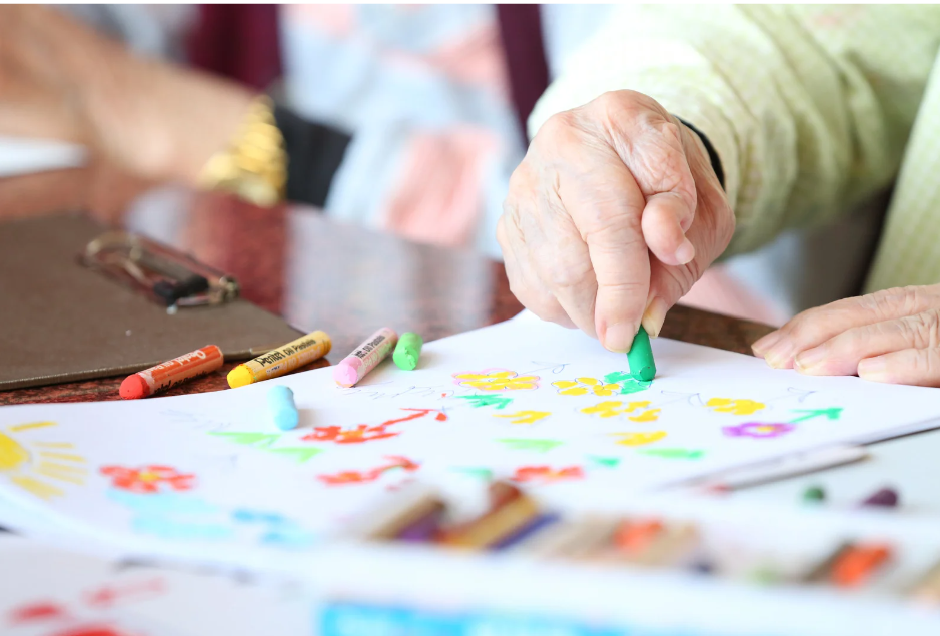
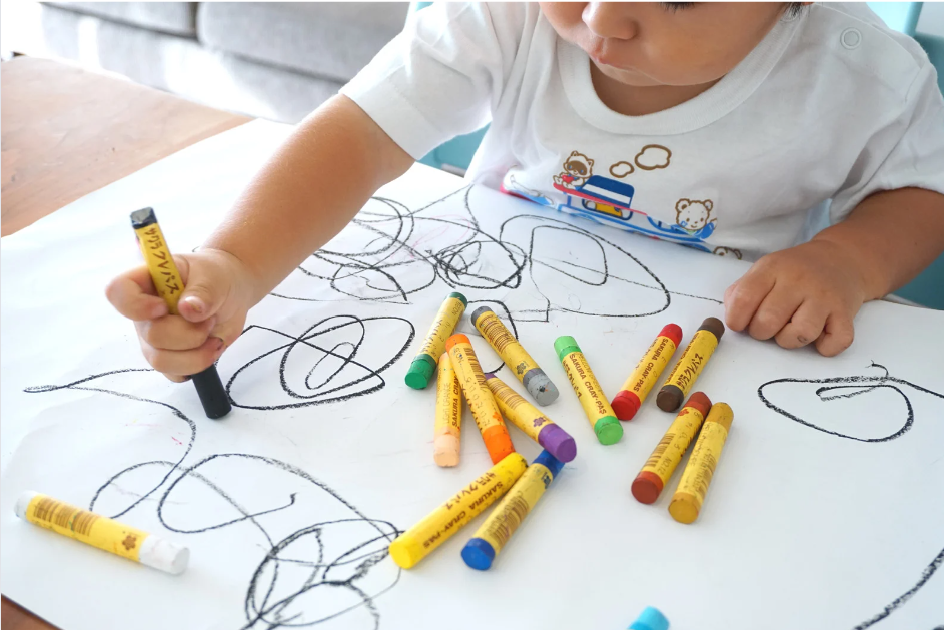
In a group environment, children, young people, and adults can become more aware of their emotions and develop an understanding of how to process them. Group sessions also serve as an outlet where they can share feelings with peers and in turn, understand that others can feel the same, or experience similar feeling and emotions in a different way to them.
Groups can consist of 3-6 children and consist of either 6 or 12 sessions that last for up 45 minutes. This would be dependant on presenting need and desired outcomes as each group is tailored to the need of the participants but follows the principles of the Drawing and Talking process.
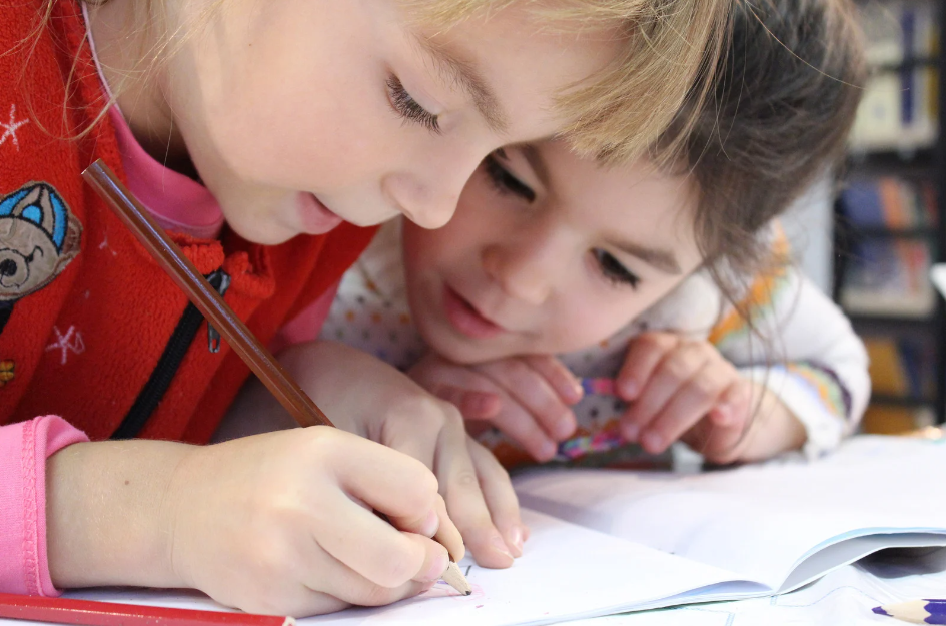
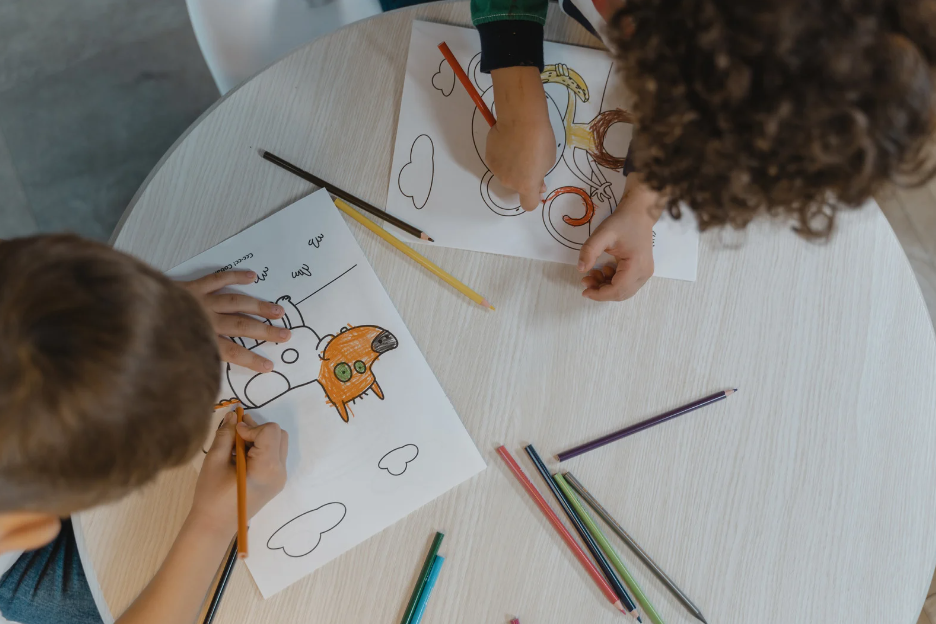
Sand play is a therapeutic technique on the play continuum. It works on the same premise, with similar outcomes to Drawing and Talking, but it uses sand play instead of drawing as a tool to conduct the sessions. (this is particularly useful for younger children).
This non-verbal, therapeutic intervention allows a child to express their feelings and thoughts that might be difficult to communicate with words alone. We know that anyone who has experienced specific stressful or traumatic events often does not have the words to express themselves or are not consciously aware of the effect it is having on their wellbeing. Sand play can be used to help support building healthy attachments and helps process trauma and improve emotional well-being.
How does sand play work?
In sand play, children are presented with a sand tray and a wide range of miniature figures to create their own 'world'. The process is entirely guided by the child's imagination and feelings. The child's interaction with the sand and figures, the scenes they create, and even the non-action in the sandbox, can reflect their inner experiences. This helps them to make sense of their own internal state. The practitioner will observe the child's play and support them without judgement or interpretation. This creates a safe, protected space for the child or young person to express and resolve conflicts at their own pace, in a way that is safe and secure for them. After the 30 minutes the practitioner will take a picture of the “sand world” they have created, print a copy, and keep it for them in their own personal folder. Once they have completed the 12 sessions, their folder will be handed back to the child / young person to keep.
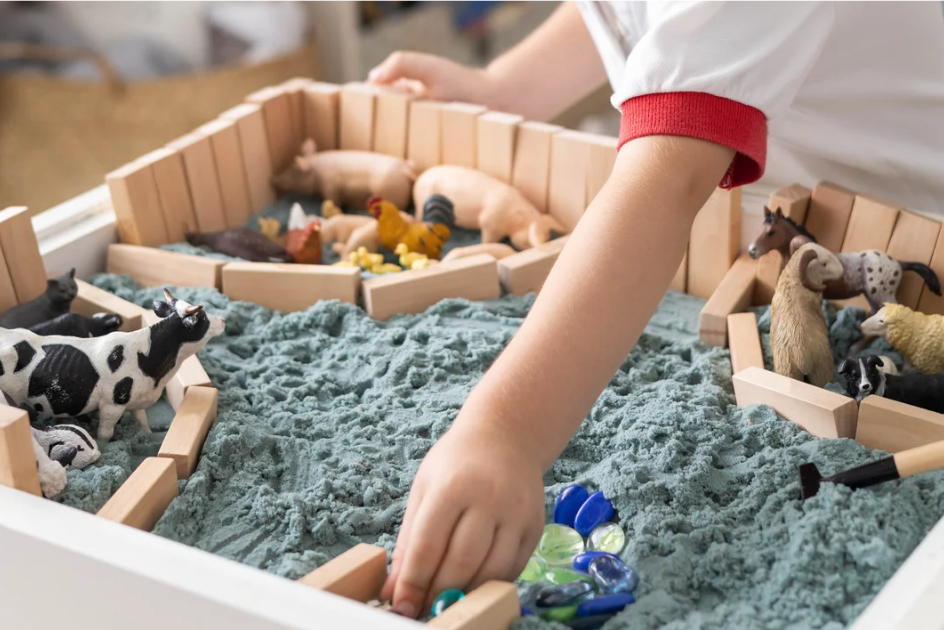
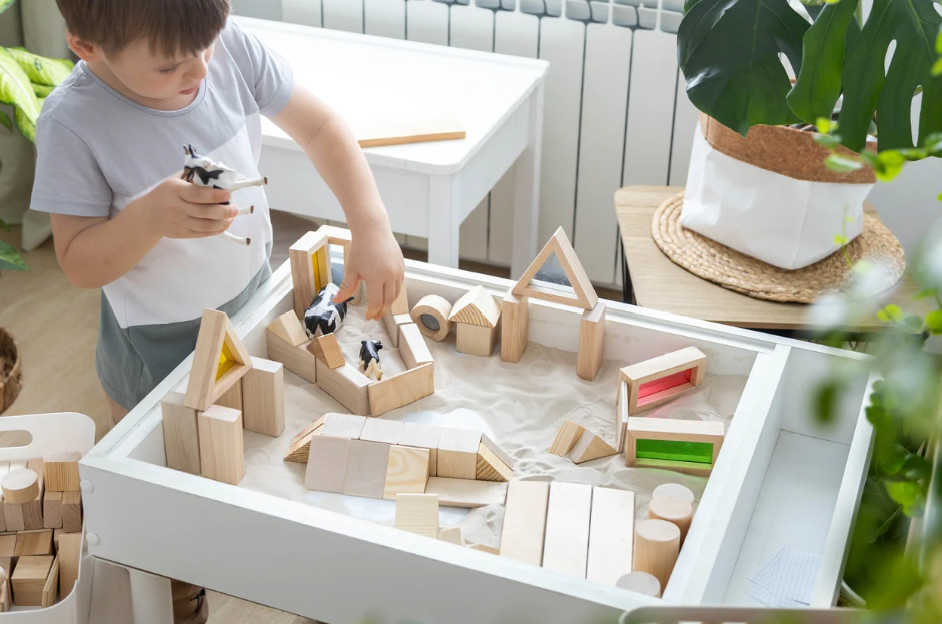
Lego Therapy
"Lego Therapy" is a flexible in-school provision which promotes the development of key communication skills, including attention and listening, vocabulary and concept development, sharing, collaboration, describing and explaining, turn taking, problem solving and conflict resolution.
The group meet for six sessions for 1 hour per week. The group consists of 3 children and 1(adult) facilitator, each child has a given role (which they rotate weekly) and must stay within that role during the session. The aim is to build a Lego model within the session by working together collaboratively. At the end of the session the children are given the opportunity to discuss what went well and what didn’t and to identify ways they can work together better in subsequent sessions.
For more information about Lego Therapy, please visit www.therapypartners.co.uk/education/lego-therapy-for-schools
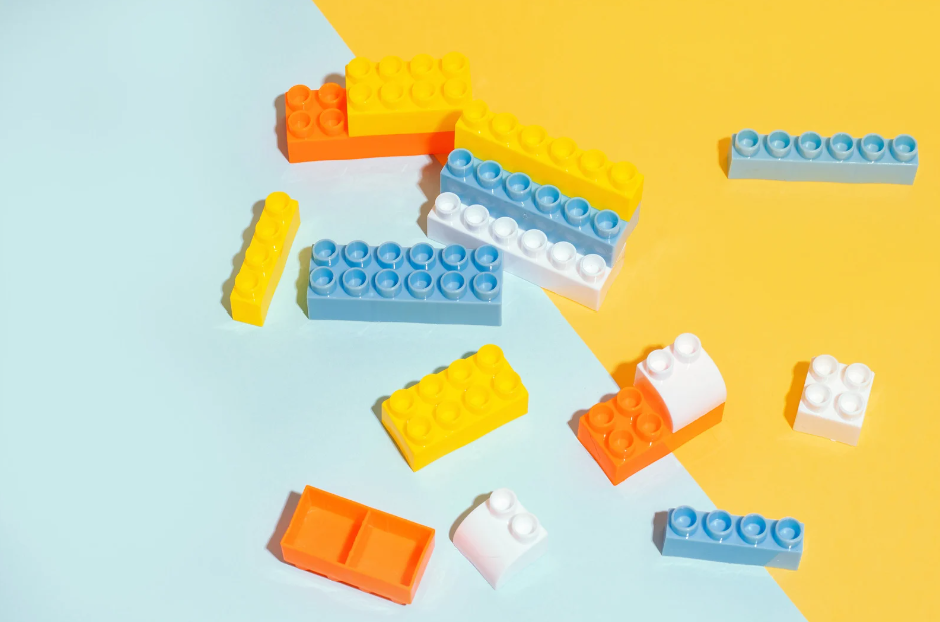
References:
For more information or to book an initial assessment
Fill out our Online initial contact form or contact us today on 0845 527 4809 and let us help you be the best that you can be.
